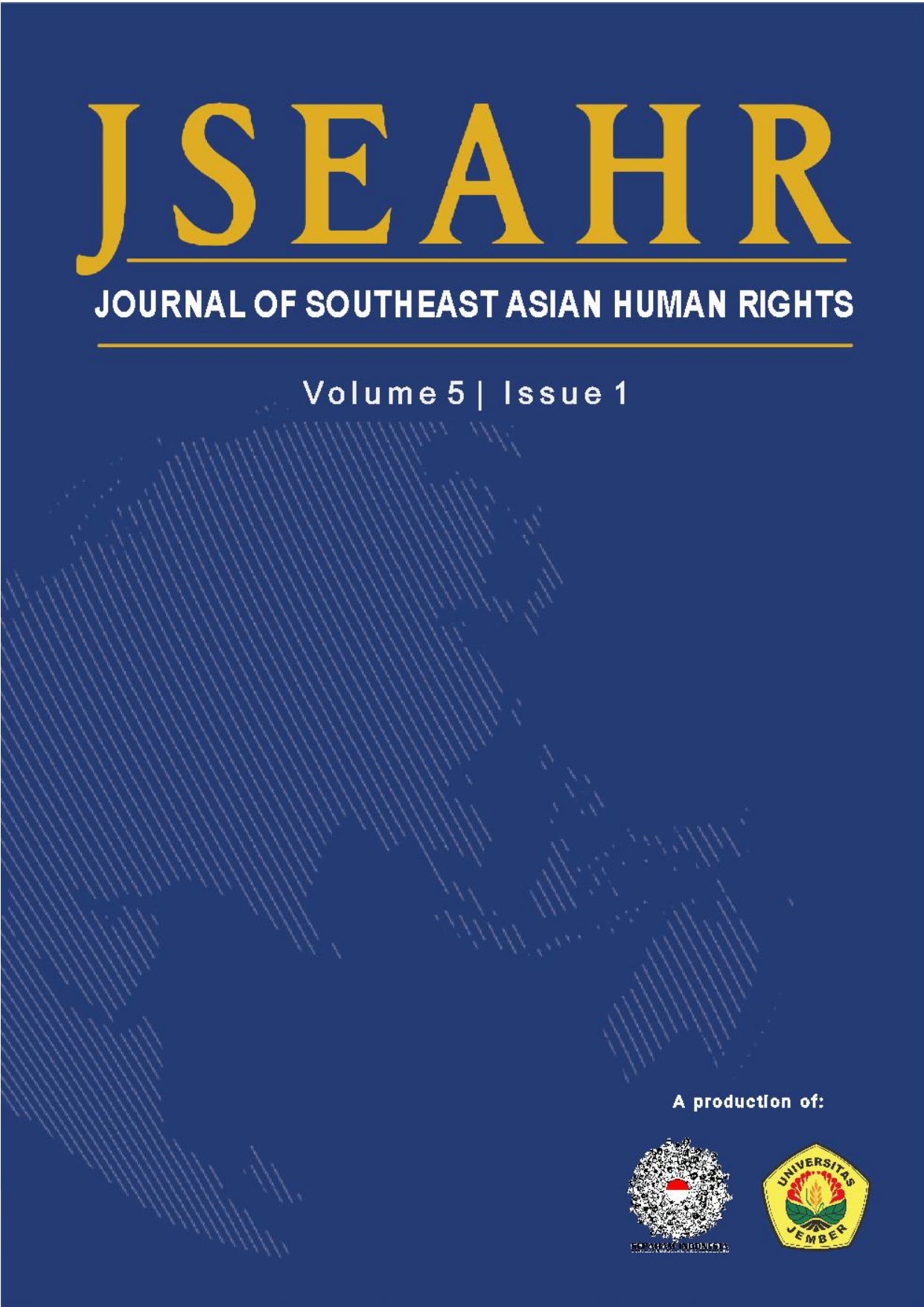Book Review: Author: Al Khanif; Title: Religious Minorities, Islam, and The Law: International Human Rights and Islamic Law in Indonesia; Publisher: Routledge, 2021
DOI:
https://doi.org/10.19184/jseahr.v5i1.24717Abstract
This book examines religious minority rights in Islam in Indonesia from the international and local human rights perspectives. Its main contribution lies in the effort to find Indonesia's uniqueness in managing minority rights in religion. This study leads the author to a rich discussion of how international human rights through its activists spread the need for freedom of every citizen and how advocates of religious orthodoxy ​​respond to it. In contrast to analysts who use the dichotomous view of the acceptance or rejection of international human rights values, the author sees complexity in the process of spreading these values. It can be said that there is a process of modifying the values ​​of secularism in human rights and localization to make these values ​​an integral part of society. In this line of view, the author calls the Indonesian state a quasi-theistic secular state which means that Indonesia is a secular country but friendly and tries to guarantee freedom of religion and worship. In the case of minority rights in Islam, the state prioritizes harmony in society and supports the orthodox views of the majority. The minority view must be assimilated with the orthodox teachings of Islam to get a place to live. The quasi-theistic secular state continues to experience contestation and has undergone a long construction process based on the narration of the peaceful entry of Islam and the relatively moderate character of Indonesian Islam. At a certain level, this state concept has developed to be an identity and norms that become a reference for how to treat religious minorities. The author thus succeeded in showing that Indonesia is an example of a country that can develop its own identity and norms of religious life that are different from that of the Western secular state system.
Downloads
References
Acharya, A. (2004, March). How ideas spread: Whose norms matter? Norm localization and institutional change in Asian regionalism. International Organization. Cambridge University Press. https://doi.org/10.1017/S0020818304582024
Acharya, A. (2011). Norm Subsidiarity and Regional Orders: Sovereignty, Regionalism, and Rule-Making in the Third World. International Studies Quarterly, 55(1), 95–123. https://doi.org/10.1111/j.1468-2478.2010.00637.x







